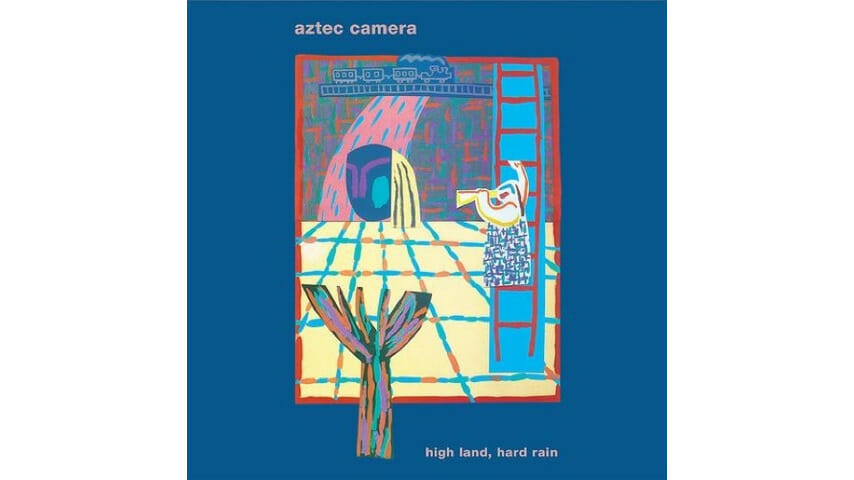
The post-punk explosion in the UK provided the perfect agar for Aztec Camera to exist and grow. The Scottish pop group, led by precocious teen songwriter and guitar wizard Roddy Frame, followed the rapidly building wave of fellow acts that mashed together genres and politics and points of view.
Into that world, Frame released a series of angst-ridden independent singles before making a deliberate push towards mainstream success via High Land, Hard Rain, a lovely and tuneful album that connected bubblegum pop with Scottish folk, and Spanish guitars with Northern soul.
Those unusual musical junctures are only part of what made the record stand out then and continue to surprise some three decades later. The youthful braggadocio of the then-19-year-old songwriter is apparent throughout this collection that includes b-sides from the album’s singles and radio sessions. It’s there in the move to throw in a little raggle-taggle Celtic flair to the start of the otherwise-jangly “The Boy Wonders” and close the album with a stark acoustic ode to the pub he frequented in school (“Down The Dip”).
Curiously, what the added tracks point out is that High Land could have been even more free-spirited. The use of acoustic drums on an early recording of “Walk Out To Winter” gives the song a punch and drive that the album version loses with its programmed rhythms and slapdash reverb. Even the b-sides from the “Oblivious” single—the aching acoustic ballad “Haywire” and the jazzy, ruminative “Orchid Girl”—are far less glossy than anything from the a-side’s source LP.
Because as fine as High Land is, it was ultimately a harbinger for a shift in one corner of the UK independent scene for a sleeker sound that welcomed MOR-leaning acts like Everything But The Girl, Haircut One Hundred and Scritti Politti’s turn towards radio pop. Frame and his cohorts here wear it well, but only because he was able to keep it from veering into pure schmaltz (something he was unable to accomplish four years alter with the cheesy album Love).
His chief weapons were a near-virtuosic command of the guitar and lyrics that revealed the heart of a poet beating inside the carapace of a pop singer. The former is his greatest strength. He bursts forth with acoustic solos on “We Could Send Letters” and the albums’ most well-known track “Oblivious,” but usually relegates it to fluid sound rhythm parts that chug and jangle in equal measure.
The latter category finds Frame in a little more wobbly territory, but he hits his mark more often than not. The failed relationship of “Letters” shows him wrestling with puppy love turned physical (“We’re making tracks, they show our touch and go/and now it’s touch and come and you should know”), and the joyful remembrances of “Release” (“Bottle merchants, both of us, overdosed on Keats/We smashed them all and watched them fall like magic in the streets”) are remarkable sentiments considering he was still in his teens when he wrote them. But I think even Frame would acknowledge that he’s been trying to chase down a phrase as heartrending and perfect as the signature line of “Oblivious”: “They’ll call us lonely when we’re really just alone.”
By anyone’s reckoning, High Land was a startlingly assured debut album, and one whose magic Frame has been trying to recapture for years with surprising success (see 1995’s Frestonia or The North Star, the 1998 album he released under his own name). I don’t imagine this reissue will be greeted with the same enthusiasm as the work of other post-punk icons from the same era. But it’s a document that is crucial to anyone working to understand the evolution of the UK music scene and a welcome addition to the library of any discerning pop fan.